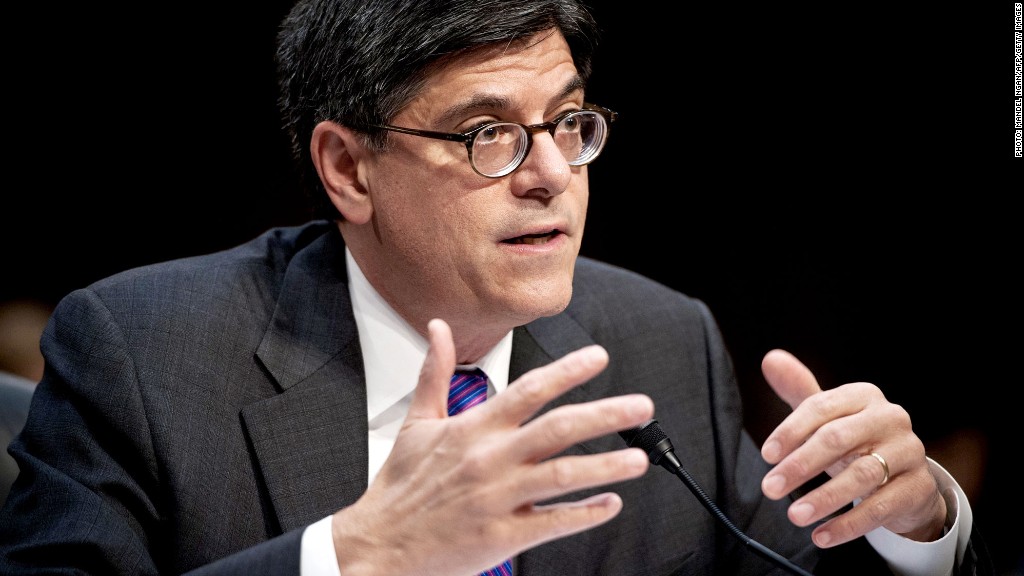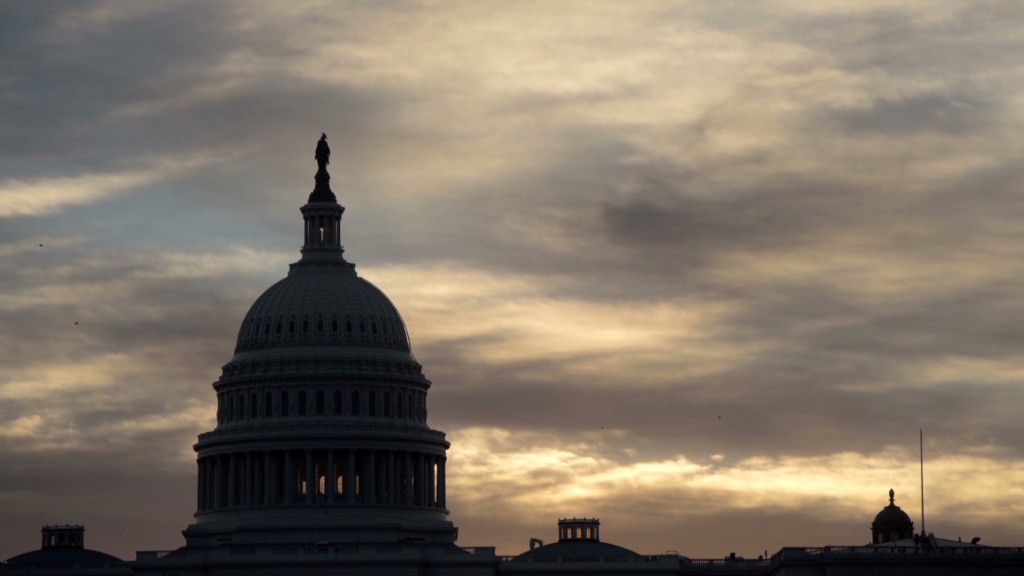
The next debt ceiling fight, if there is one, could occur as early as March, according to a new estimate from the Bipartisan Policy Center.
The budget deal brokered by Congress this week lets Treasury keep borrowing until February 7 to pay the country's obligations, and by doing so, avert default.
After that point, Treasury will be able to use special accounting maneuvers, called "extraordinary measures," to keep paying bills without going over the debt limit.
And that can buy Treasury time during any standoff in Congress if lawmakers haven't increased the debt limit by February 7.
During this latest standoff, extraordinary measures lasted for roughly five months.
But Treasury won't have that much time this winter because it will have to pay out large amounts of tax refunds in February.
Exactly how much time it will have is unclear since government cash flows are hard to predict this far in advance.
But the Bipartisan Policy Center estimated Friday that Treasury likely will exhaust its extraordinary measures between the end of February and mid-March. At that point, Treasury would only have a matter of days to continue paying bills in full and on time before running out of cash on hand.
It's not clear whether Republicans will use the threat of default as a negotiating tactic. That strategy didn't work this time and, besides, 2014 is an election year, noted former Capitol Hill budget staffer Pete Davis, who now run Davis Capital Investment Ideas.
Related: Congress agrees to ... do its job
If Republicans choose not to fight, will lawmakers just happily raise their hands to increase the debt limit?
Probably not. It's more likely they'll again do what they did this week and "suspend" the debt ceiling.
Yup. You heard that right. They suspended the debt ceiling.
Here's how it works: The deal effectively allows Treasury to continue borrowing to pay the country's legal obligations without regard to the debt limit. Then, on February 8, the debt limit will automatically reset to a higher level that reflects how much Treasury borrowed during that "suspension period."
The Bipartisan Policy Center estimates that between now and then, Treasury will borrow $600 billion -- half of which will be used to unwind the extraordinary measures of the past five months. Those measures covered deficit spending and intragovernmental debt obligations that occurred since May 19.
Today the debt ceiling is approximately $16.7 trillion. If the Treasury borrows $600 billion between now and February 7, the limit would automatically reset at $17.3 trillion on February 8.
Cleverly, the bill also allows the House and Senate, if they have enough votes, to issue a "joint resolution of disapproval" of the debt limit suspension.
That may sound like a recipe for another crisis, but it really isn't.
First, odds are the Senate wouldn't pass such a resolution. So it would die there.

But even if it went forward, President Obama could veto it. And overcoming that veto requires more votes than either the House or Senate could likely produce.
In this way, the suspension measure offers Republicans and Democrats who publicly object to a debt ceiling increase an easy-out: They never have to vote directly for or against an increase.
Instead, they can register their disapproval if they want, but it won't stop Treasury from borrowing and importantly, won't cause the country to willfully default on its debts.


